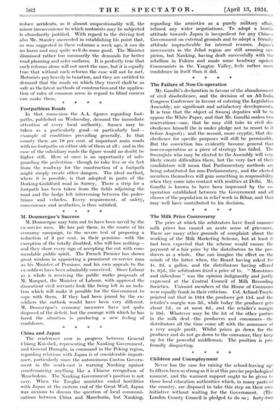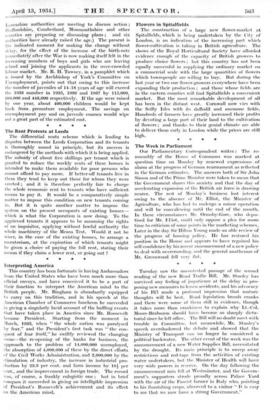Children and Unemployment Never has the case for raising the
school-leaving age to fifteen been so strong as it is at this precise psychological moment, and the warmest support ought to be given to those local education authorities which, in many parts of the country, are disposed to take this step on their own initiative without waiting for the Government. (The London County Council is pledged to do so ; forty-two Lancashire authorities are meeting to discuss action ; Staffordshire,_ Cumberland, Monmouthshire and other counties are preparing or discussing plans ; and six authorities have already raised the age.) The present is the indicated moment for making the change without delay, for the effect of the increase of the birth-rate inimediately'after the War is now making itself felt in the increasing numbers of boys and girls who are leaving school and joining the applicants in the over-crowded labour market. Mr. R. H. Tawney, in a.pamphlet which is issued by the Archbishop of York' Committee on Unemployment, points out that owing to this increase the number of juveniles of 14-18 years of age will exceed the 1933 number in 1935, 1936 and 1937 by 115,000, 386,000 and 443,000 respectively. If the age were raised by one year, about 400,000 children would be kept back from , premature employment. The savings on unemployment pay and on juvenile courses would wipe out a great part of the estimated cost.
* * *

















































 Previous page
Previous page